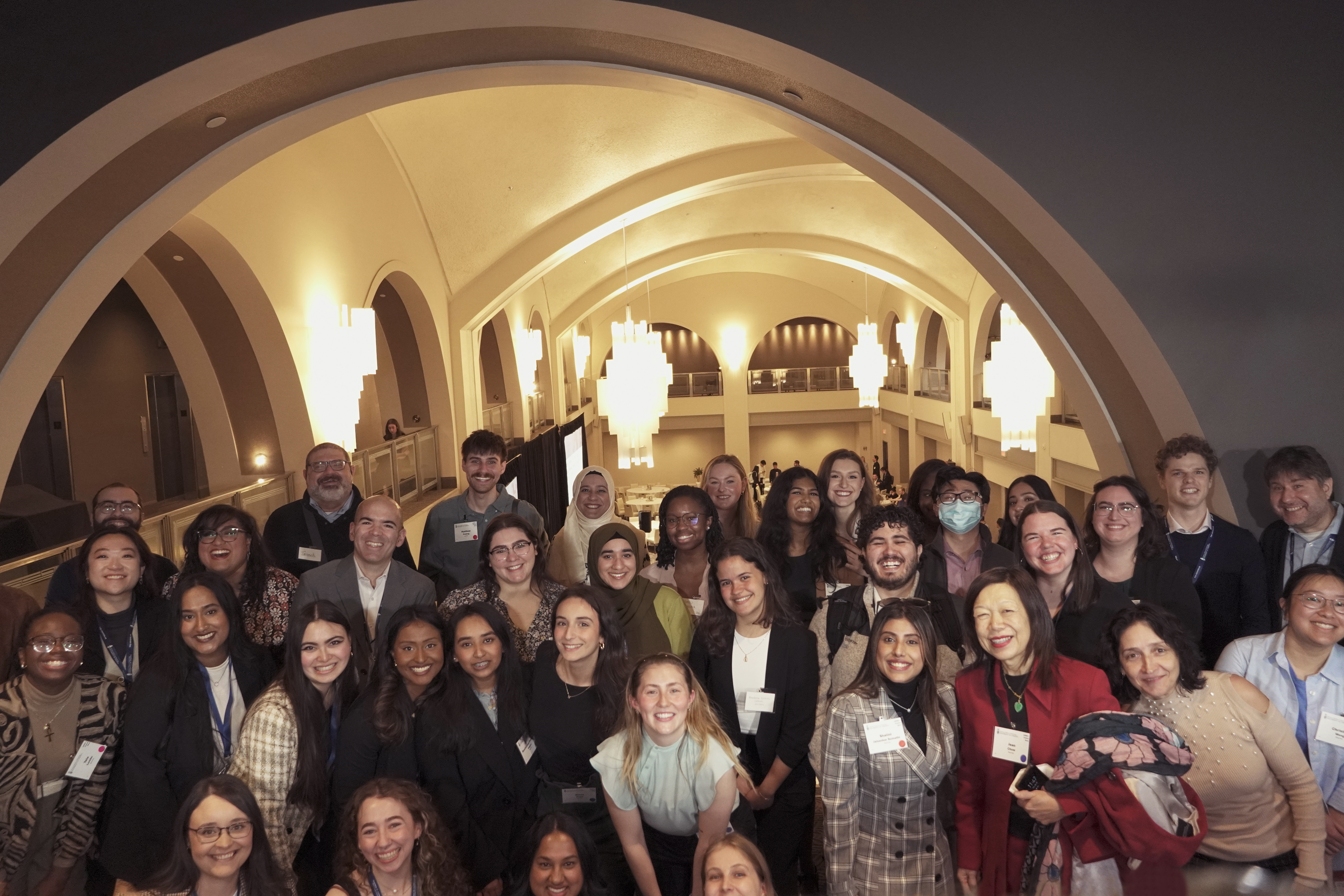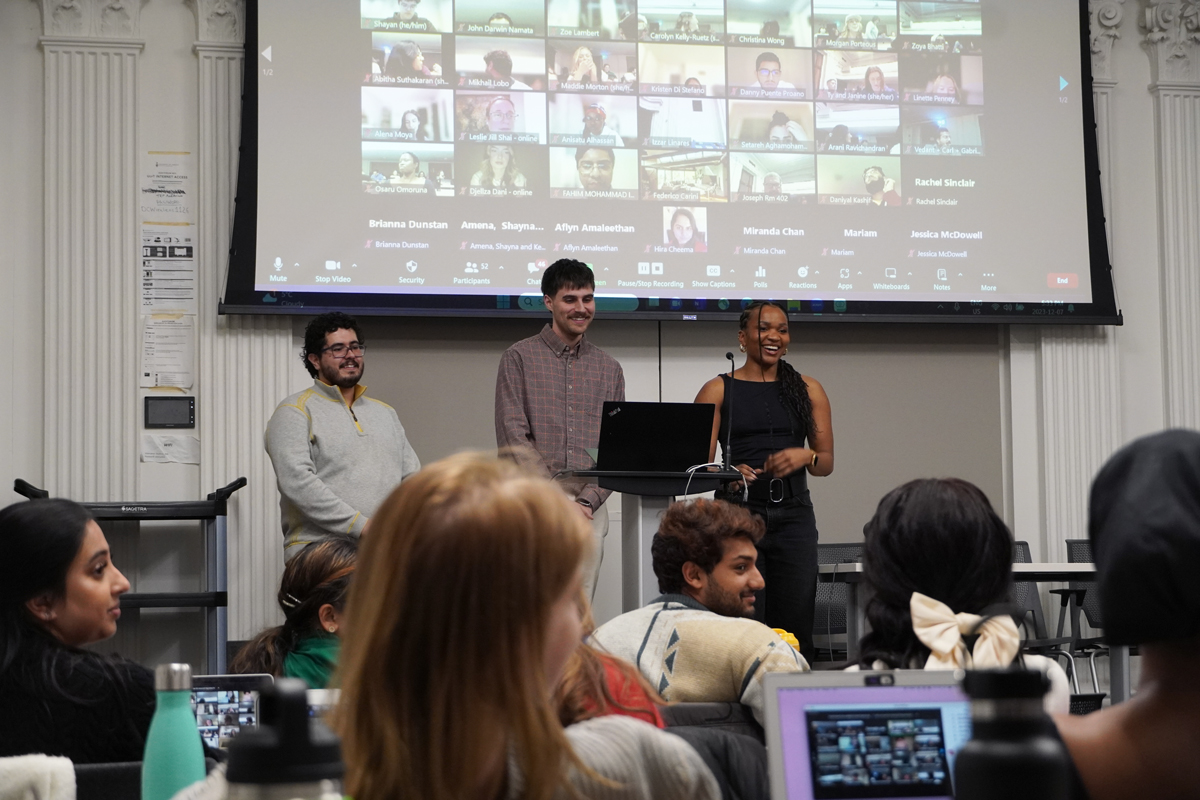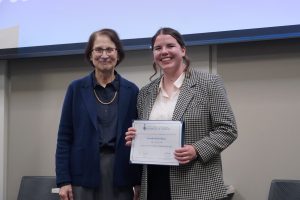
Celebrating International Day for Women in Science 2023 at the TRP
The United Nations General Assembly designated February 11th as International Day for Women and Girls in Science to strive towards gender equality for women and girls pursuing STEM-related fields.
Geil Astorga and Abitha Suthakaran
The United Nations General Assembly designated February 11th as International Day for Women and Girls in Science to strive towards gender equality for women and girls pursuing STEM-related fields.
We reached out to some of the amazing women in the Department of Laboratory Medicine and Pathobiology to find out why they love STEM and what advice they have for women looking to pursue a career in science. Here are the responses from TRP members Geil Astorga and Abitha Suthakaran.
Geil Astorga
2nd year student
What is your focus in the TRP and why do you do it?
My team’s capstone project is focused on Sickle Cell Disease, particularly in supporting youth who are transitioning from pediatric to adult healthcare. Engaging with youth, caregivers and parents, individuals with lived experience and healthcare professionals, our goal is to co-design an intervention to help youth with Sickle Cell Disease become transition-ready.
Aside from my capstone project, I have been involved in different communications and knowledge translation (KT) initiatives related to childhood disability research, developmental services, and social determinants of health. What I love about the science I do right now is having the opportunity to combine my background in strategic communications, KT and marketing, to translate knowledge into meaningful tools, resources and interventions that will help patients. I enjoy being part of processes and developments that move findings into real-world applications. For instance, a huge project I’m part of right now is CanTreatCOVID, an adaptive platform trial evaluating the effectiveness of COVID medications to reduce symptoms faster and prevent long COVID. I enjoy co-leading the Recruitment and Communications Committee, engaging with almost 25 patient partners from different walks of life, and collaborating with a diverse team of professionals.
Why STEM?
I have an Honours degree in Communications and never thought I would be working in Science when I started my undergraduate studies. My thinking changed when I first got a summer job as a Communications Assistant in a health science research centre. I was able to be a part of projects that make a difference in people’s lives. I continued to work in health science research offering my skills and perspective as a Communications professional. Who knew social media posts could increase research impact? Or effectively designing an annual report could help fund more studies? Or writing plain language summaries could engage more patient partners? I wanted to take my work a step further, and that’s why I decided to pursue a Master’s degree in Translational Research. All of this wouldn’t have been possible without the supportive researchers, mentors and staff I’ve worked with throughout these years—which is also one of the reasons why I stayed in the field.
What advice do you have for women and girls interested in STEM?
Follow your curiosity. Girls and women often face unrealistic expectations, and your career journey doesn’t have to add up to them. It’s okay not to have everything planned at the outset. Sometimes the uncertainties about where your skills and interests will take you make working life interesting. My advice is to find your “why.” Staying true to your motivations helps you keep moving forward. When you’re focused on your purpose, eventually, you will notice things are working out. Find mentors and support systems that will guide you along the way. Continue learning, chasing opportunities, and most importantly, continue being curious!
Abitha Suthakaran
1st year student
What is your focus in the TRP and why do you do it?
In the past, I’ve had the privilege of working on a variety of clinical research projects, such as longitudinal studies on borderline personality disorder and evidence-based reviews on traumatic brain injury. With my program in LMP, I’ve been learning how to create innovative solutions to address gaps in the fields of healthcare I am interested in. For example, I am passionate about improving health outcomes for minority and vulnerable populations (e.g., BIPOC, LGTBQ+, neurodivergent), and my program has allowed me to explore this. I am currently collaborating on a group project to create a web platform that matches autistic individuals to autism-specific mental health professionals and services in their area. I also recently completed an opinion editorial on why all obstetrician-gynecologists should have mandatory training on providing transgender-specific care.
For someone who has mastered rote memorization and has done bench science their entire life, I believe TRP continually challenges me to think outside of the box. After all, the program’s favourite phrase is “embrace ambiguity.” With every course and class project, I have had the opportunity to explore a new field of research and work with peers with different areas of expertise. All of this has helped me be more creative and open-minded, two skills which will serve me well regardless of what career path I choose.
Why STEM?
My love for science started with forensics (I blame the show “Forensic Files” for that). One day, my peculiar childhood fascination with autopsies morphed into an equally odd but more general interest in diseases. Fast forward a few years, and I completed my honours specialization in pathology with a minor in psychology. What drew me to healthcare specifically was its impact – I felt that my degree was completely and utterly useless if I couldn’t help someone with it. The best way to do that is to translate my knowledge into tangible solutions for patient problems, which is what I do in TRP.
What advice do you have for women and girls interested in STEM?
There’s a well-documented phenomenon in psychology – stereotype threat – that states that negative assumptions or stereotypes about a particular group of people can affect their behaviour or performance. For instance, telling women that men are better than women at math can significantly decrease their scores on math tests. So, my advice is to not let gender norms or stereotypes limit you!

Kate McDonald
Like this story?
Explore
- Room 120
- Old Administration Building
- University of Toronto
- 263 McCaul, Toronto, ON
- Canada, M5T 1W7
Copyright © 2024 — MHSc in Translational Research. All Rights Reserved




